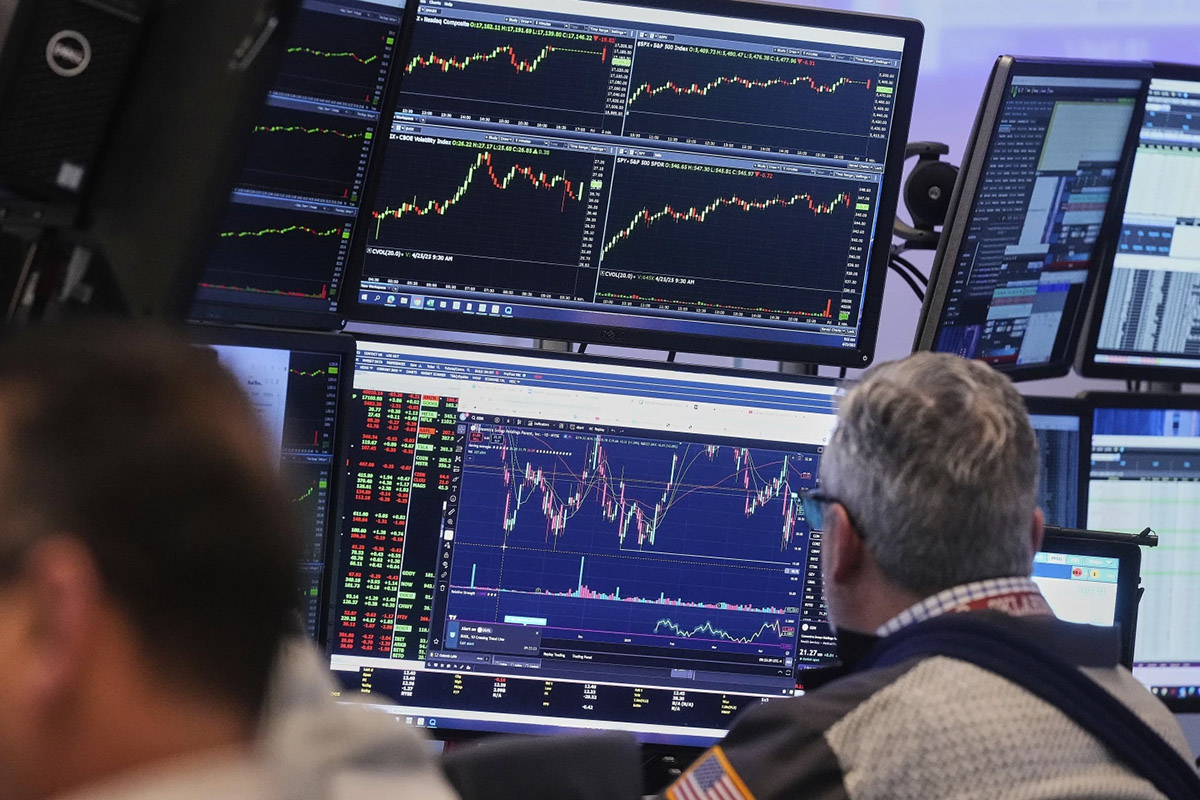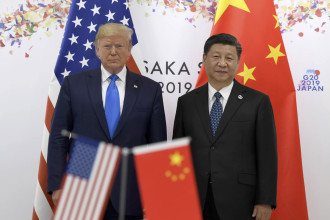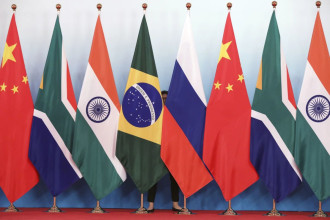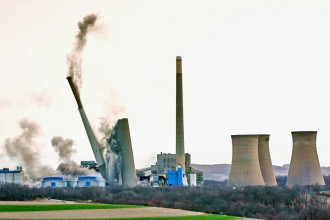
HONG KONG: Asian markets edged higher in cautious trading on Monday as investors monitored developments in negotiations over US President Donald Trump’s tariffs.
US futures declined, and oil prices remained largely unchanged.
Shares in China fell despite Beijing’s increased efforts to boost the economy, as uncertainty persisted over the status of any talks between Washington and Beijing.
The president claims he is actively negotiating with the Chinese government on tariffs, while both the Chinese government and US Treasury Secretary Scott Bessent have stated that talks have yet to commence.
Hong Kong’s Hang Seng rose 0.1% to 21,995.82, while the Shanghai Composite Index remained nearly unchanged at 3,294.02.
Tokyo’s Nikkei 225 gained 0.4% to 35,863.60, and South Korea’s Kospi added 0.1% to 2,5549.19.
Australia’s S&P/ASX 200 advanced 0.8% to 8,028.20, while Taiwan’s Taiex increased by 0.6%.
On Friday, Big Tech stocks helped Wall Street close a volatile week, one marked by swings from fear to relief and back to caution due to Trump’s trade war.
The S&P 500 rose 0.7% to 5,525.21, extending a significant three-day rally, and is now within 10.1% of its record set earlier this year. Gains for Nvidia and other influential tech stocks propelled the Nasdaq Composite up by a market-leading 1.3% to 17,382.94.
The Dow Jones Industrial Average posted a modest increase of 0.1% to 40,113.50.
Alphabet climbed 1.7% in its first trading session after Google’s parent company reported late Thursday that its profit surged 50% in early 2025 compared to the previous year, exceeding analysts’ expectations.
Another market heavyweight, Nvidia, was a major driver of the S&P 500’s upward movement, with the chip company’s stock rising by 4.3%.
These gains offset a 6.7% drop for Intel, which fell despite reporting better-than-expected results for the beginning of the year. The chip company cited “elevated uncertainty across the industry” and issued a forecast for upcoming revenue and profit that fell short of analysts’ expectations.
Despite last week’s rally, as speculation about Trump firing Federal Reserve Chair Jerome Powell diminished and hints of a selective softening of his stance on tariffs emerged, little has fundamentally changed, Stephen Innes of SPI Asset Management noted in a commentary.
“But let’s not kid ourselves: this isn’t a clean pivot. It’s hope and narrative management, plain and simple. What’s really driving the bounce isn’t hard policy action — it’s the perception of de-escalation,” Innes said.
Trump claims he is on track to finalise several new trade deals within weeks but has also suggested it is “physically impossible” to hold all the necessary meetings.
Approximately three out of every five stocks in the S&P 500 declined, including Eastman Chemical, which dropped 6.2% after issuing a profit forecast for spring that fell short of analysts’ expectations.
Companies across various industries have increasingly reported that the uncertainty created by Trump’s tariffs is making it difficult to provide financial forecasts for the upcoming year.
The hope is that if Trump rolls back some of his stringent tariffs, he could avert a recession that many investors view as otherwise likely due to his trade war.
However, the inconsistent implementation of tariffs may be prompting households and businesses to adjust their spending and delay plans for long-term investment due to rapidly changing conditions, sometimes shifting by the hour.
A report on Friday indicated that sentiment among US consumers declined in April, though not as sharply as economists had anticipated. The University of Michigan survey revealed that its measure of expectations for future conditions has dropped by 32% since January, marking the steepest three-month percentage decline since the 1990 recession.
In other dealings early Monday, US benchmark crude oil fell by 25 cents to $63.27 per barrel in electronic trading on the New York Mercantile Exchange.
Brent crude, the international standard, decreased by 24 cents to $66.04 per barrel.
The US dollar rose to 143.62 Japanese yen from 143.60 yen. The euro edged lower to $1.1358 from $1.1366.
By RSS/AP






